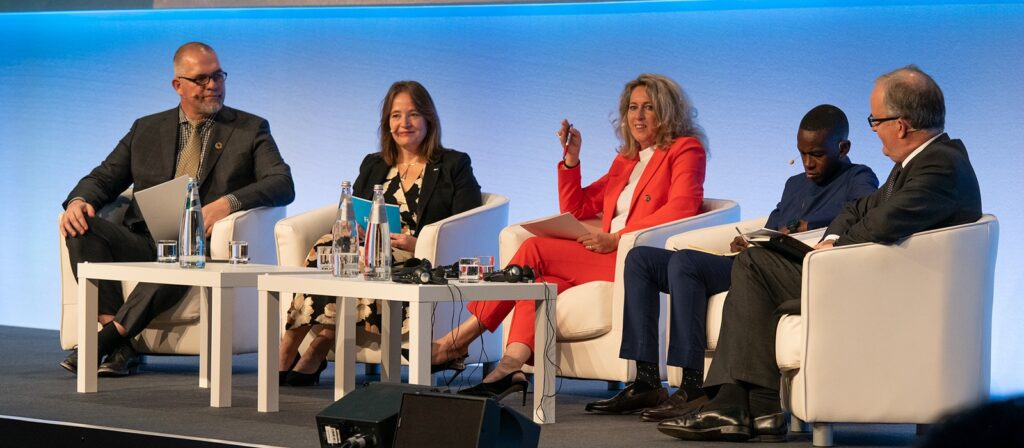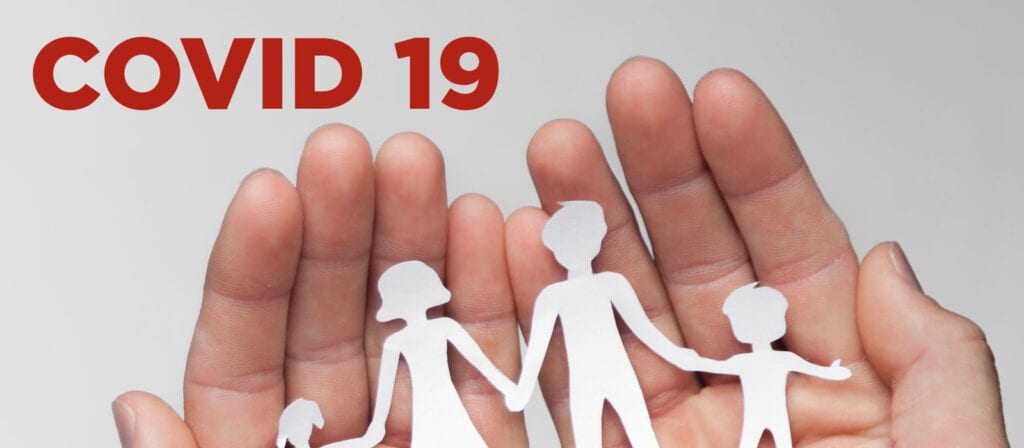The impact of COVID-19 on operational issues – now and in the future
The context of COVID in each country is different but there are similarities in the operational issues that mutuals have faced over the past 18 months, and as the pandemic continues.
To ensure business continuity during the pandemic, P&V (Belgium) built on their existing infrastructure to allow for home working for all employees – there is now a framework for the “new normal” hybrid way of working. There has also been a large investment in communication (such as webinars and management training) which is expected to continue in the future.
The COVID-19 vaccination program started late in Honduras compared to many countries throughout the world. The population was severely affected and there were high claims in the life insurance sector, but importantly Seguros Equidad were able to adapt. One of the many initiatives Seguros Equidad introduced during the pandemic was “safeguard passports” for a select number of employees which allowed them to work directly with customers and be physically present if needed.
PPS (South Africa) is looking to formulate an official hybrid working policy soon. Flexibility is seen as essential for the future. However, there is also still a role for face-to-face meetings to play in facilitating innovation and collaboration.
Beneva (Canada), created in 2020 by the merger of two existing mutual companies La Capitale and SSQ Insurance, to create the largest mutualist insurance company in the country, put in place numerous special arrangements to help their customers deal with the crisis. Examples include deferring payments, suspending the cancellation of policies for non-payments and offering complementary hospitalisation coverage to insured people with critical illness insurance. A recent survey of Beneva employees showed that employees want to work from home at least for part of the week. To begin with, its hybrid approach to working will be voluntary; but agility to adapt depending on how the situation evolves will be a critical success factor.
Mutuality making a difference during the pandemic
It is natural for mutuals to take care of their employees, members and local communities, and during the pandemic this has been no different. However, what the pandemic has enabled people to do is compare. For example, employees of mutuals can now directly compare their situation with friends and family members that are also working from home often in less favourable conditions.
Examples of how mutuality shone through in the actions of the companies represented are numerous. To monitor staff well-being, P&V created a platform called ‘Everyone OK?’ through which employees can answer questions about their mental health. Through their Foundation, they also provided over 1,300 children with a PC to ensure they their education could continue whilst schools were closed – for some families this was the only PC in the household.
Seguros Equidad have not dismissed a single employee during the pandemic and, out of a concern for employee health, they worked closely with the relevant authorities to ensure their employees were vaccinated against COVID-19 as soon as possible. Employees are considered the most valuable asset.
PPS gave a lot of money to purchase protective equipment which was distributed not only to their members but to other medical professionals too. Beneva have also invested heavily in ensuring employees have the right equipment to be able to work effectively from home.
Mutual and cooperative insurers have been able to go far beyond what other businesses and stock companies with shareholders can do for their staff, policyholders and communities in this situation.
Session panellists:
- Mariela Silva, CEO, Seguros Equidad (Honduras)
- Izak Smit, CEO, PPS (South Africa)
- Jean St-Gelais, Chair of the Board of Directors, Beneva (Canada)
- Hilde Vernaillen, CEO, P&V (Belgium) and ICMIF Chair
- Shaun Tarbuck, Chief Executive, ICMIF, moderator





